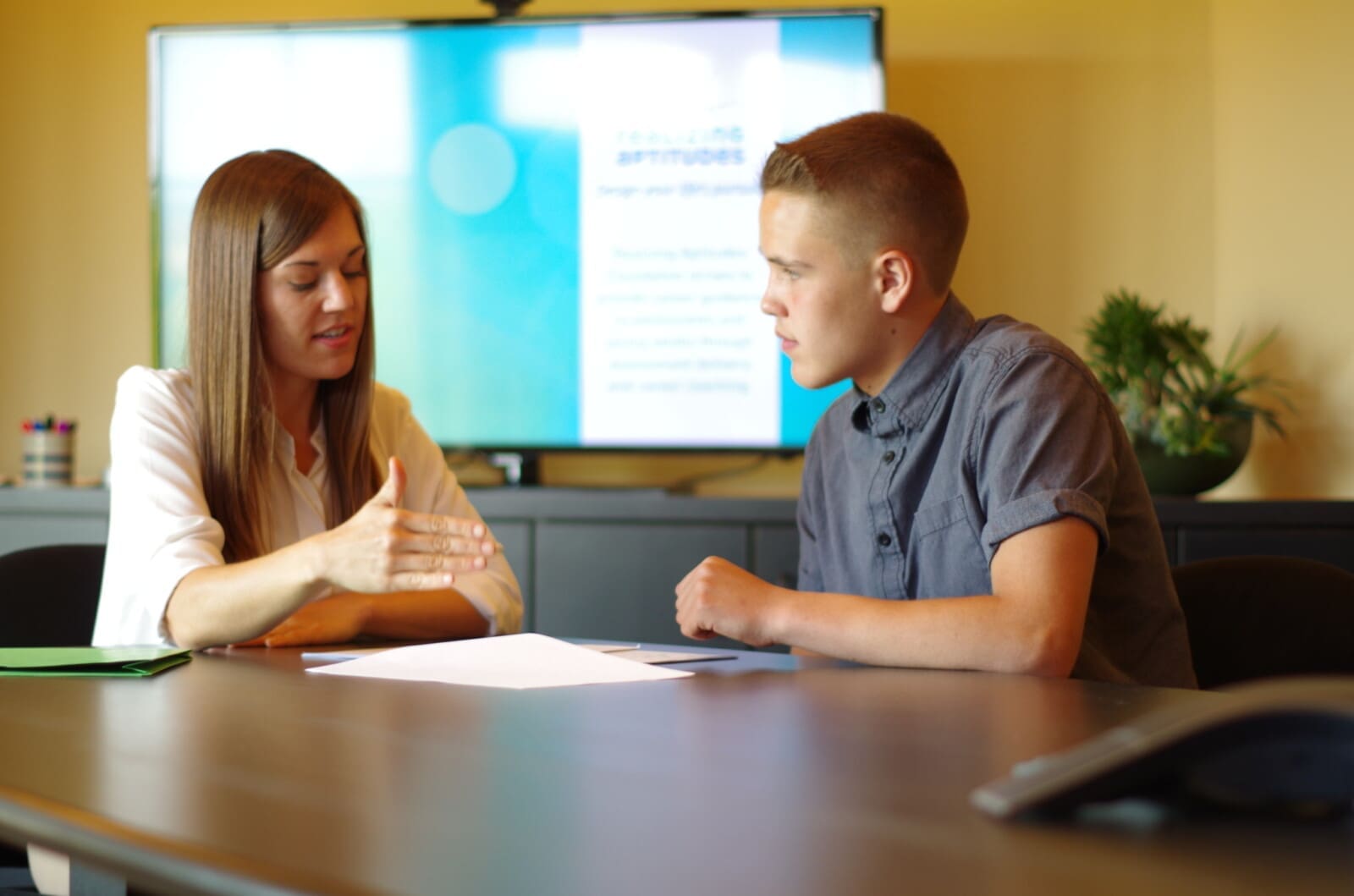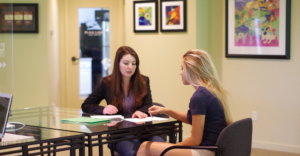
Get stories and expert advice on all things related to college and parenting.

Maria, a college sophomore, was getting a liberal arts degree and had two dominant interests. One was painting and drawing — the other was medicine. But she thought she wasn’t good at math and so was scared to go pre-med. At the same time, she worried she wouldn’t be able to make a living with art. She had racing thoughts, and building anxiety.
Sebastian, a sophomore in high school, had a ton of interests. High energy and bright, he was excited about and excelled in many subjects. Thinking ahead to college, every major he looked at sounded interesting. How was he ever going to choose?
These are the kinds of students that Jennifer Falkoski of Realizing Aptitudes loves working with. Realizing Aptitudes specializes in one-on-one personalized career coaching for high school and college students. “I know firsthand that navigating education and career can be incredibly daunting,” Jennifer said. “To have someone in your corner who is dedicated to helping you learn who you are and what you can bring to the world can make such a difference.”
Realizing Aptitudes was founded as a non-profit in 2010 with the mission of helping youth — including at-risk young people — learn more about themselves and how their interests and strengths align with various careers. Today Realizing Aptitudes works with students and families from all backgrounds.  “Families are looking for a well-rounded [career preparation] offering that they can participate in,” Jennifer said. And while the program is intended to help students move forward independently, “ideally parents are involved… We’ve been successful in helping parents understand their support role.”
“Families are looking for a well-rounded [career preparation] offering that they can participate in,” Jennifer said. And while the program is intended to help students move forward independently, “ideally parents are involved… We’ve been successful in helping parents understand their support role.”
Back to Maria. She and Jennifer, her Realizing Aptitudes coach, explored from a high level what Maria liked about each field. An early session also included an ability assessment. Maria scored in the 90th percentile for quantitative reasoning — pretty high! “It was a really cool light bulb moment,” Jennifer recalled. Maria had always assumed that if she was good at one thing (reading and writing) she couldn’t be good at the other (math, science). Now she believed she could go into the medical field.
It gets better. “I also found how her two interests could intersect,” Jennifer said. Medical illustrators design art in medical textbooks. “Oh, I can’t wait to go home and tell my parents!” Maria told Jennifer.
Working with a career coach helped Maria identify and address underlying concerns and then open up to and refine her possibilities. She had increased self-advocacy and confidence in her decision making.
For Sebastian, the high school sophomore, the process of self-discovery was also key in relieving the angst of hobby vs. career. Following his assessments, he and his RA coach (Jennifer again) analyzed his strengths, then broke down what would be fun vs. what he could actually do every day to make a living (highlighting other factors like job growth and income potential). “We narrowed down his options and also helped him to think about the skills and education he was building at that moment and how, moving forward, he would apply those things to his interests in the future.” They considered questions like, “You get energy from being outside but is it something you want to do every day?” Finally, they narrowed down his search to a short list of 5–6 potential careers, which will make his college search and choice of academic major a whole lot easier.
 Jennifer and her fellow coaches at Realizing Aptitudes are gratified at the results they see. Self-discovery oriented career coaching helps cut down on the possibility that students will spend more than four years in college. Students can take what they learn during coaching and then work with an academic advisor to map out a plan.
Jennifer and her fellow coaches at Realizing Aptitudes are gratified at the results they see. Self-discovery oriented career coaching helps cut down on the possibility that students will spend more than four years in college. Students can take what they learn during coaching and then work with an academic advisor to map out a plan.
Best of all the students gain in confidence and clarity. Jennifer gets feedback like this from parents all the time: “I wish I would have had access to something like this when I was a teenager. I absolutely believe it would have saved me a lot of time and college money along the way!”